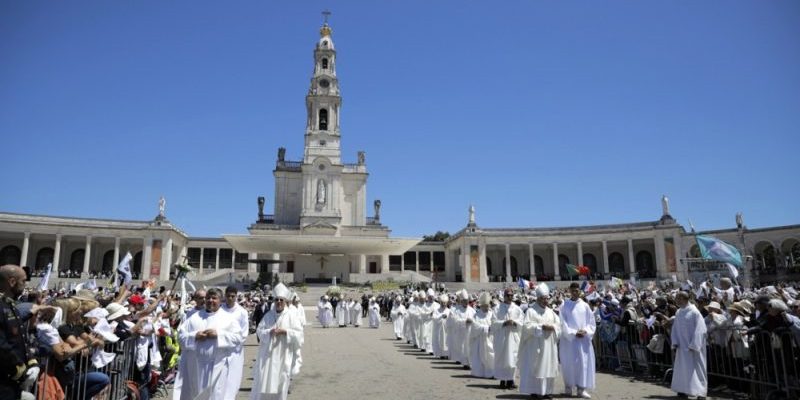Pope Francis arrives in Lisbon on Wednesday (2 August) for a global gathering of young Catholics taking place in the shadow of Portugal’s huge clergy sexual abuse scandal and criticism of soaring costs for the event.
Hundreds of thousands of young people from around the world have descended on Lisbon to welcome Francis, who is due to land at Lisbon’s military air base at 10 a.m. (0900 GMT).
World Youth Day was devised by the late Pope John Paul for young Catholics in their teens or early 20s and is held every two or three years in a different city. This will be the first since 2019 due to the COVID-19 pandemic.
The 86-year-old Francis is making his first trip since intestinal surgery in June and uses a wheelchair and cane.
In Lisbon, huge stages have been set up, screens installed and posters with Francis’ face plastered across the city.
The event in Portugal, which is about 80% Catholic, comes less than six months after a report by a Portuguese commission said at least 4,815 minors were sexually abused by clergy – mostly priests – over seven decades.
“There will be young people from all over the world and the reality (of abuse) is present in all continents,” said Filipa Almeida, 43, who was abused by a priest when she was 17.
“It’s a great opportunity for the Church to do something,” said Almeida, a co-founder of Coracao Silenciado (Silenced Heart) an association which helps victims.
Francis is expected to meet privately with abuse victims.
Some Portuguese have criticised the event’s costs in one of Western Europe’s poorest nations where millions are struggling to make ends meet due to low salaries, inflation and a housing crisis.
The Lisbon local government has rejected accusations by political parties and rights groups that is removing homeless people from the city’s streets.
Francis will also visit Fatima, the town north of Lisbon where the Church believes that the Virgin Mary appeared to three poor shepherd children in 1917.

